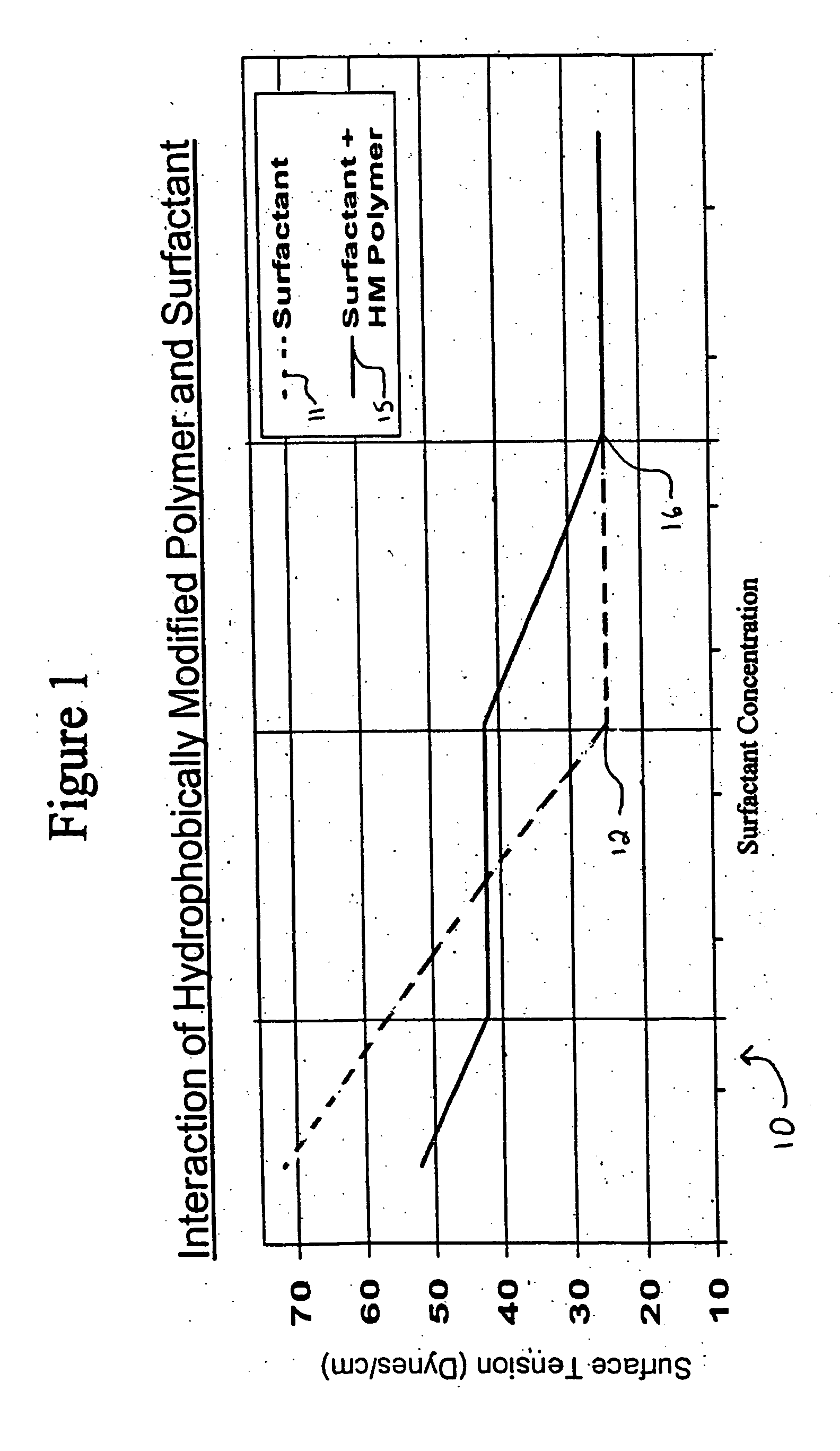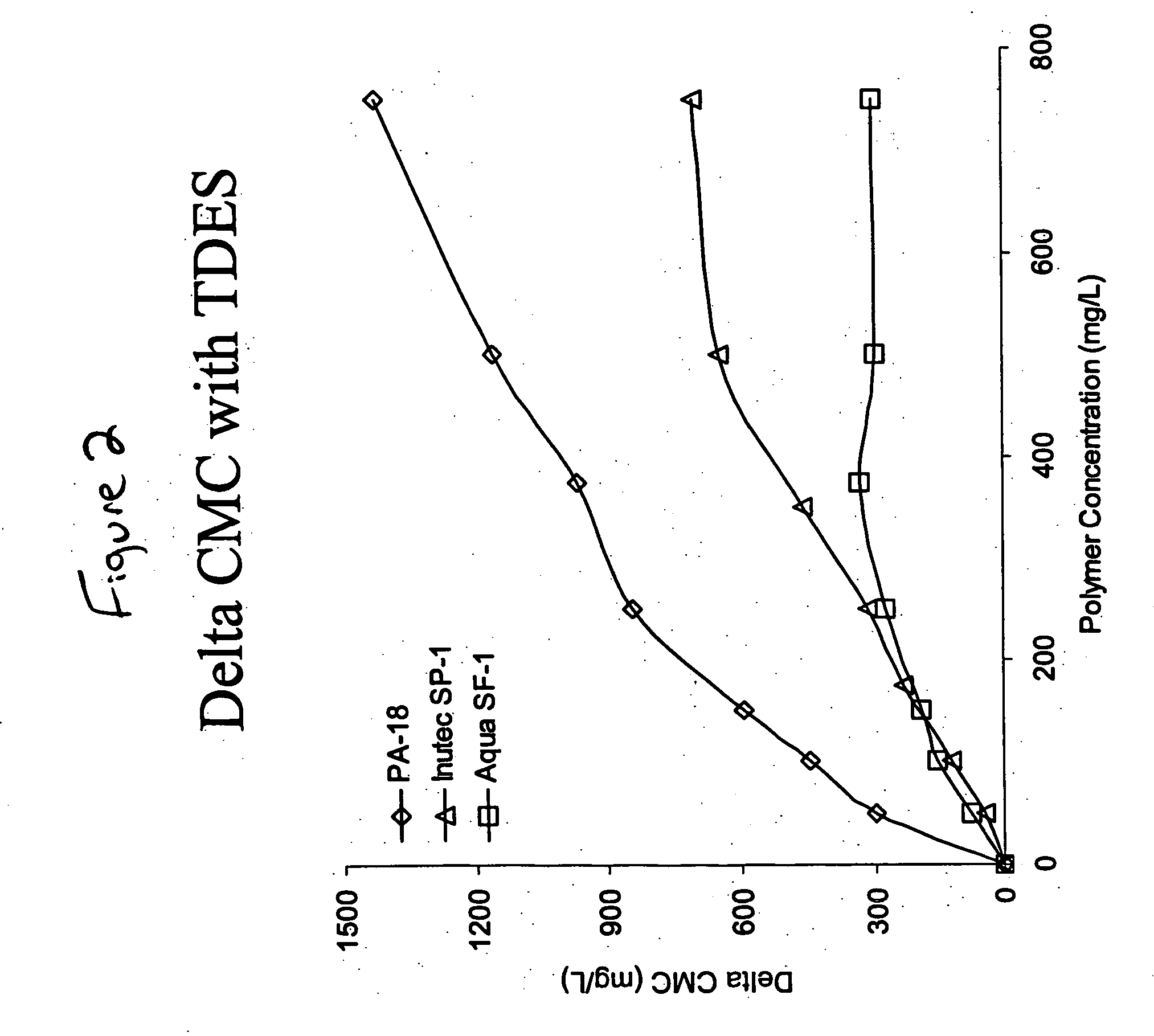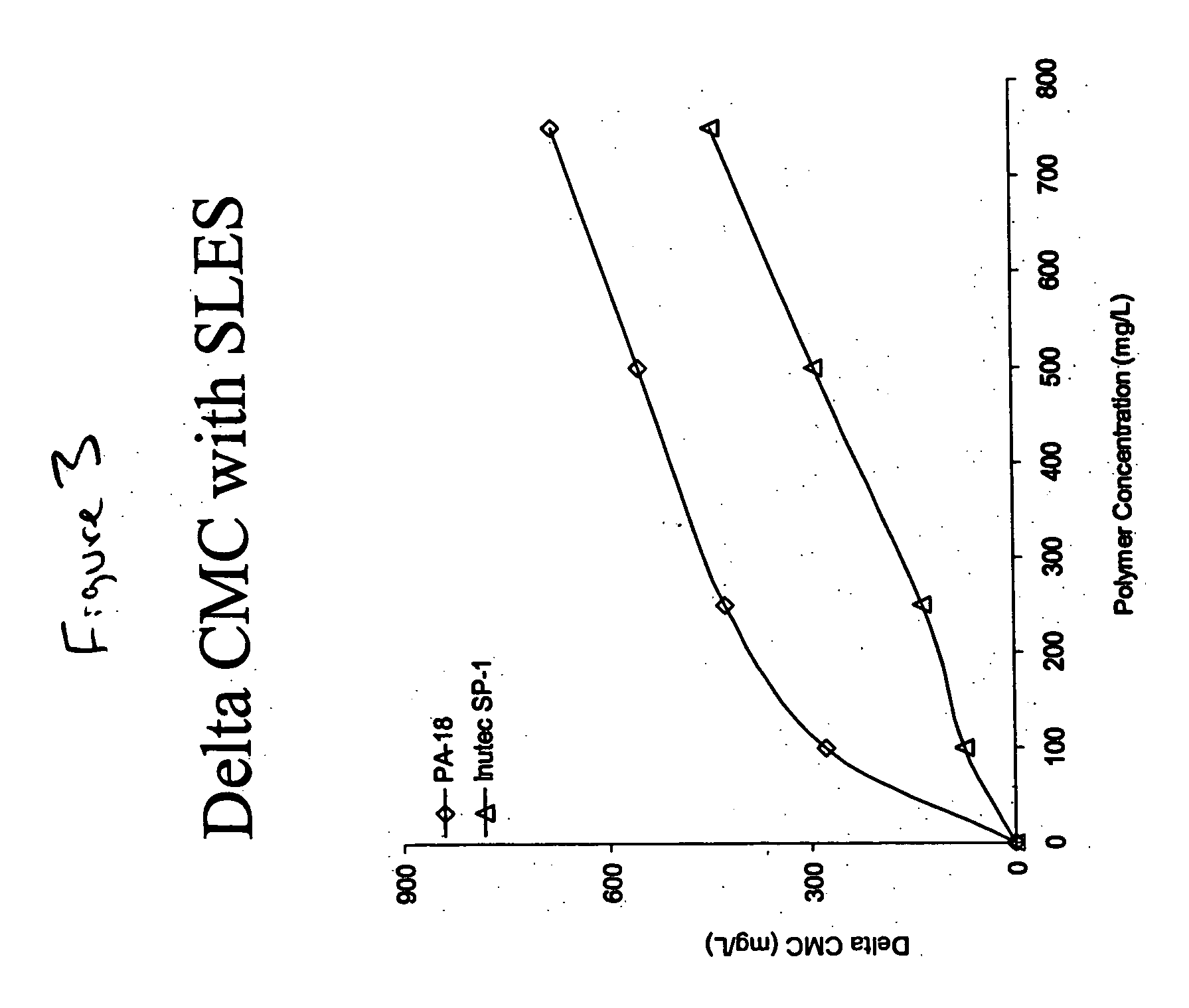Low-irritation compositions and methods of making the same
a composition and low-irritation technology, applied in the field of compositions having low-irritation characteristics, can solve the problems of increasing irritation associated with synthetic detergent compositions, affecting the use affecting the effect of skin and/or eyes, so as to reduce irritation, reduce irritation, and reduce the effect of molecular weigh
- Summary
- Abstract
- Description
- Claims
- Application Information
AI Technical Summary
Benefits of technology
Problems solved by technology
Method used
Image
Examples
example 1
[0146] The following example illustrates the efficiency of certain polymers of the present invention to associate surfactant thereto and reduce irritation as compared to higher molecular weight polymeric materials.
[0147] TDES
[0148] Compositions (E1-E14) comprising low-molecular weight polymers in water, and comparable compositions comprising no polymer or higher molecular weight polymers (C1-C8) were prepared as described below. The CMCs, Delta CMCs, and Delta CMC / 750 for each composition with the surfactant sodium trideceth sulfate (TDES) were calculated using the Forward Titration Tensiomtry Test as described below and the results reported in Table 2.
TABLE 1*Trade nameINCI NameE1E2E3E4E5E6E7Inutec SP-1Inulin Lauryl0.0050.0100.01750.0250.03750.0500.075CarbamateSodiumSodium———————HydroxideHydroxide(20%)DI WaterDI WaterQsQsQsQsQsQsqsTrade nameINCI NameE8E9E10E11E12E13E14PA-18Octadecenee / M0.0050.0100.0150.0250.03750.0500.075A CopolymerSodium HydroxideSodium———————solution (20%)Hyd...
example 2
[0153] The following example illustrates the efficiency of certain polymers of the present invention to associate surfactant thereto and reduce irritation as compared to higher molecular weight polymeric materials.
[0154] The CMCs, Delta CMCs, Efficiency, and Delta CMC / 750 for Compositions (E2, E4, E6, E7, E9, E11, E13, and E14) and comparable composition C1 with the surfactant sodium laureth sulfate (SLES) were calculated using the Forward Titration Tensiomtry Test as described below and the results reported in Table 3.
[0155] The compositions were tested for Critical Micelle Concentration (CMC) values using the Forward Titration Tensiomtry Test. The initial solution was 30 ml of one of the Examples. The dosing solution was 5750 mg / L of sodium laureth sulfate in HPLC grade water. Forty-two (42) doses were preformed, which increased the sodium trideceth concentration from 0 mg / L in the initial solution up to 3771 mg / L at the final measurement. The Delta CMCs for each composition wer...
example 3
[0157] The following example illustrates the efficiency of certain polymers of the present invention to associate surfactant thereto and reduce irritation as compared to higher molecular weight polymeric materials.
[0158] The CMCs, Delta CMCs, Efficiency, and Delta CMC / 750 for Compositions (E9, E12, E13, E14, and E15) and comparable composition C1 with the surfactant cocamidopropyl betaine (CAPB) were calculated using the Forward Titration Tensiomtry Test as described below and the results reported in Table 4.
[0159] The compositions were tested for Critical Micelle Concentration (CMC) values using the Forward Titration Tensiomtry Test. The initial solution was 30 ml of one of the Examples. The dosing solution was 5750 mg / L of CAPB in HPLC grade water. Forty-two (42) doses were preformed, which increased the sodium trideceth concentration from 0 mg / L in the initial solution up to 3771 mg / L at the final measurement. The Delta CMCs for each composition were calculated based on the CMC...
PUM
| Property | Measurement | Unit |
|---|---|---|
| Fraction | aaaaa | aaaaa |
| Percent by mass | aaaaa | aaaaa |
| Molar mass | aaaaa | aaaaa |
Abstract
Description
Claims
Application Information
 Login to View More
Login to View More - R&D
- Intellectual Property
- Life Sciences
- Materials
- Tech Scout
- Unparalleled Data Quality
- Higher Quality Content
- 60% Fewer Hallucinations
Browse by: Latest US Patents, China's latest patents, Technical Efficacy Thesaurus, Application Domain, Technology Topic, Popular Technical Reports.
© 2025 PatSnap. All rights reserved.Legal|Privacy policy|Modern Slavery Act Transparency Statement|Sitemap|About US| Contact US: help@patsnap.com



